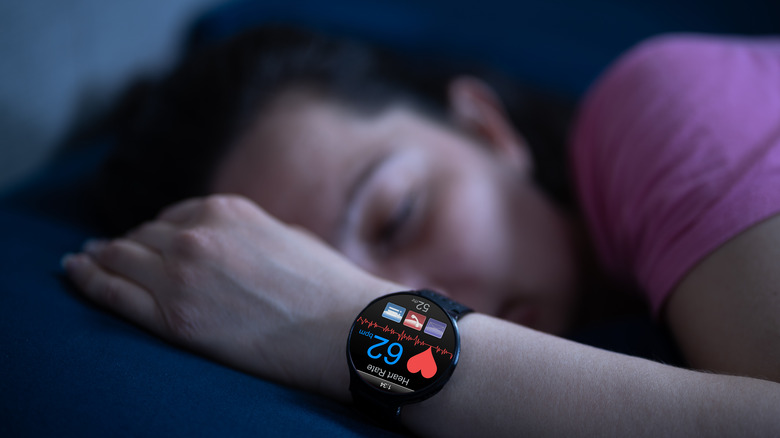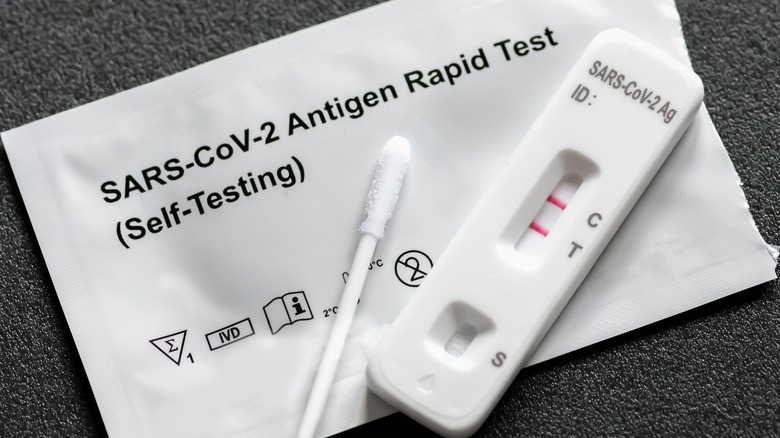Is It Possible For Your Smartwatch To Detect COVID-19 Early?
Fitness trackers have come a long way since they first emerged on the market. Now able to track far more than just step count, some smartwatches can read our blood pressure, while others can monitor sleep patterns, offer personalized health guidance, and even detect falls (via Medical News Today).
One such device, known as the AVA bracelet, is a fertility tracker used to calculate which days a woman is most likely to become pregnant based on collected data such as heart rate, skin temperature, breathing rate, blood flow, and more (via BMJ Open). It was this device (along with artificial intelligence technology) that researchers used in a new preliminary study to determine if activity trackers also had the potential to detect COVID-19 infections prior to the start of symptoms.
More than 1,100 participants from the country of Liechtenstein were recruited from a previous study that began in 2010 to participate in the current study (per BMJ Open). Participants had a mean age of 44. Asked to wear the tracking device every night for the duration of the study, a total of 1.5 million hours of physiological data was collected.
Research is promising but further studies are needed
Participants were also asked to make note of any waking-hour activities that could impact their nervous system functioning through documentation in a smartphone app (per BMJ Open). Such activities included alcohol consumption as well as medication or drug use. Participants were also asked to track any COVID-19-related symptoms and were routinely tested using rapid antibody tests and PCR tests.
11% of participants contracted COVID-19 during the course of the study — over half of which had worn the tracking device for 29 days or more prior to the emergence of symptoms, per BMJ Open. Bracelet data collected during this timeframe revealed notable physiological changes in those with COVID-19 infection. Implementing machine learning technology, researchers developed an algorithm that was able to detect COVID-19 infection up to two days in advance before individuals became symptomatic. However, accuracy rates for viral detection were below 80%, indicating that more research is still needed amongst a larger sample size.
"Our findings suggest that a wearable-informed machine learning algorithm may serve as a promising tool for presymptomatic or asymptomatic detection of COVID-19," the researchers concluded, as written in the study.


